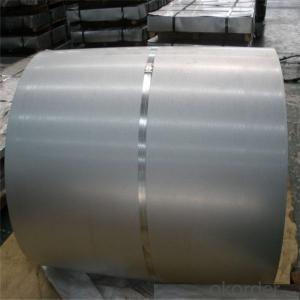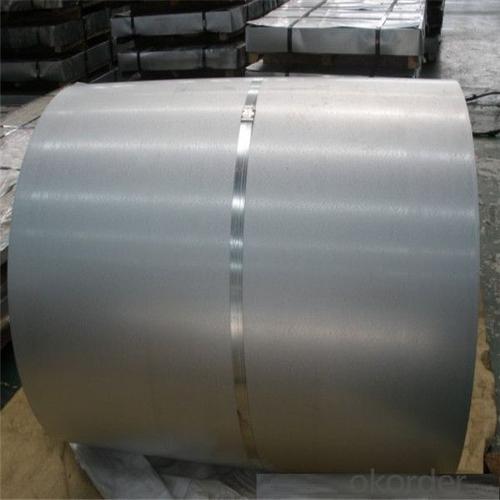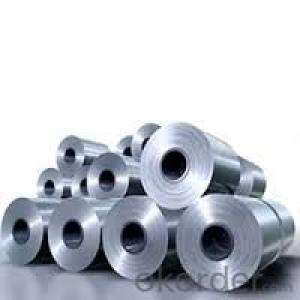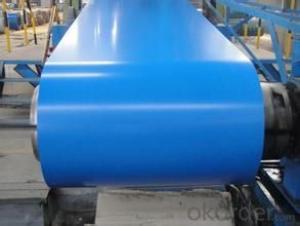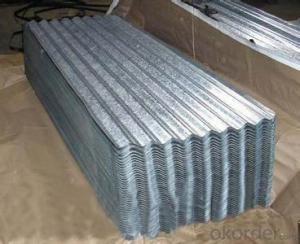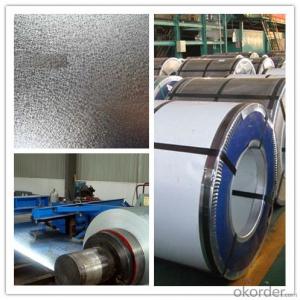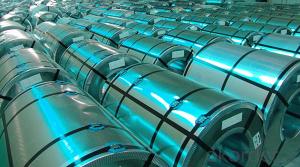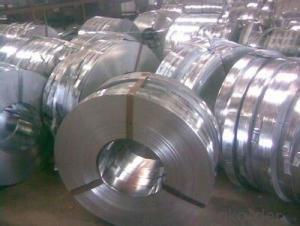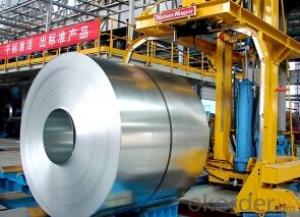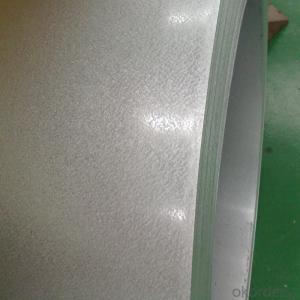Aluzinc steel coil for roofing cladding decking
- Loading Port:
- Tianjin
- Payment Terms:
- TT OR LC
- Min Order Qty:
- 25 m.t.
- Supply Capability:
- 14567 m.t./month
OKorder Service Pledge
OKorder Financial Service
You Might Also Like
Specification
Hot –dip aluzinc steel sheet/coil is substrated on cold rolled steel (CRC) in various strength and
specification. Coating composition is 55% aluminum in weight ratio, 43.4% zinc, and 1.5% silicon,
with excellent corrosion and heat resistance performance.
Standard and Grade :
Hot-dip Aluzinc steel coils | ||||
ASTM A792M-06a | EN10327-2004 | JIS G 3321:2010 | AS- 1397-2001 | |
Commercial quality | CS | DX51D+AZ | SGLCC | G1+AZ |
Structure steel | SS GRADE 230 | S220GD+AZ | SGLC400 | G250+AZ |
SS GRADE 255 | S250GD+AZ | SGLC440 | G300+AZ | |
SS GRADE 275 | S280GD+AZ | SGLC490 | G450+AZ | |
SS GRADE 340 | S320GD+AZ | SGLC570 | G450+AZ | |
SS GRADE 550 | S350GD+AZ | G500+AZ | ||
S550GD+AZ | G550+AZ | |||
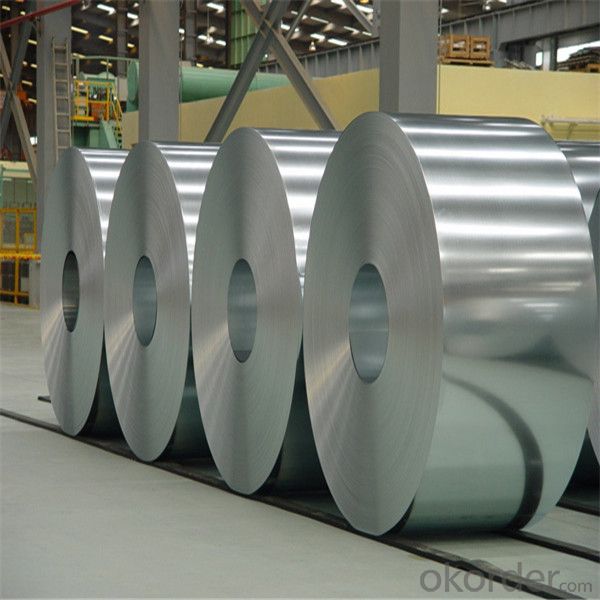
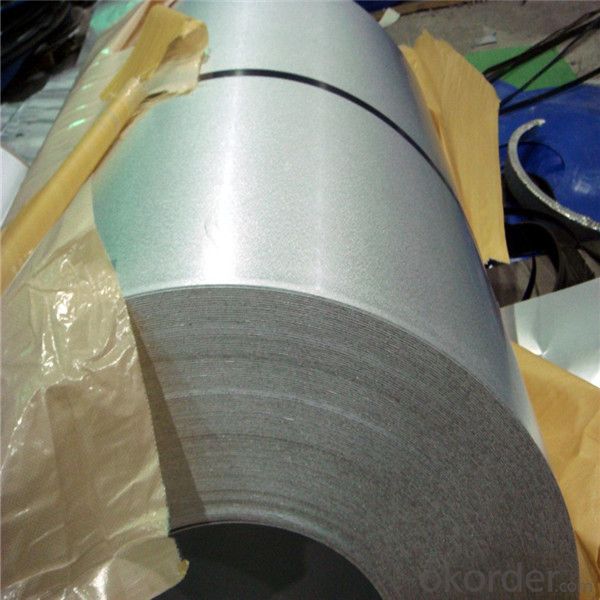
Application :
Production of cold formed corrugated sheet and profiles for roofing, cladding, decking, tiles, sandwich
walls, rainwater protective systems, air conditioning duct as well as electrical appliances and engineering.
Packaging & Shipping
Packaging Detail | The packing of coil consists of anti-damp paper ,PVC film ,hardboard paper , steel box , strapped with steel strips, fitted with locks and edge protectors and guarantees the optimal condition of the delivered goods. Each coil can be additionally fitted with wooden/steel skids(eye of the side) or wooden pallets(eye of the sky) |
Delivery Time | within 30 days of receipt of LC original or prepayment |
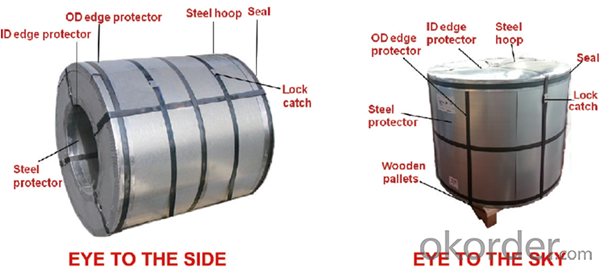
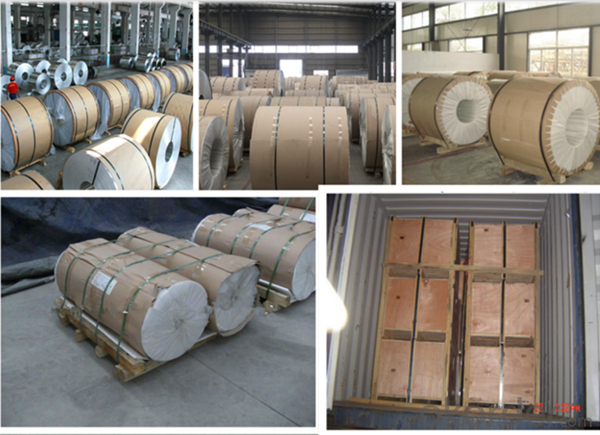
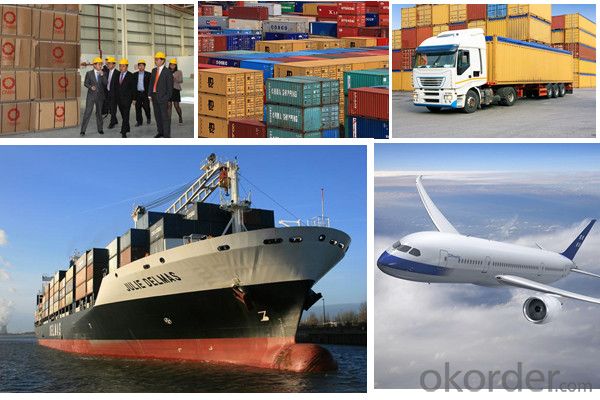
Our Services
MOQ | FCL, 25 metric tons per 20GP, can be assorted with different sizes. |
LCL for trial order is acceptable. | |
Price Term | EX-WORK, FOB China Port, CNF, CIF |
Payment | T/T, 30% advanced payment before production and balance before shipment; OR Irrevocable L/C at sight. |
Delivery Time | within 30 days of receipt of LC original or prepayment |
FAQ
Q: How do you guarantee the quality of your product?
A: Every process will be checked by responsible QC which insures every product's quality.
Q: How much is your delivery time?
A: Normally within 30 days of receipt of LC original or prepayment, but mostly according to the
specific requirements or the quantity
Q: I need sample, could you support?
A: We can supply you with the sample for free, but the delivery charges will be covered by our customers.
For avoiding the misunderstanding, it is appreciated if you can provide the International Express Account for
Freight Collect. Also you can have a visit to us, welcome to CNBM!
- Q: How does the thickness of a steel coil affect its applications?
- The thickness of a steel coil has a significant impact on its applications. The thickness determines the strength, durability, and versatility of the steel, making it suitable for various uses across different industries. In applications where strength is crucial, such as the construction industry, thicker steel coils are preferred. Thicker coils provide higher structural integrity and load-bearing capacity, which is essential in buildings, bridges, and infrastructure projects. Thicker steel coils also offer better resistance to bending, warping, and other forms of deformation, making them ideal for heavy-duty applications. The thickness of a steel coil also affects its durability. Thicker coils have a higher resistance to wear, corrosion, and damage, making them suitable for harsh environments or applications that involve constant friction or exposure to elements. For example, thicker steel coils are commonly used in manufacturing heavy machinery, automotive parts, and mining equipment, where durability is paramount. Furthermore, the thickness of a steel coil determines its versatility and adaptability. Thinner coils can be easily formed into different shapes and sizes, making them suitable for applications that require intricate designs or tight tolerances. Industries such as automotive, aerospace, and consumer electronics often rely on thinner steel coils for their lightweight and flexible nature. On the other hand, thicker steel coils may limit the range of applications due to their weight and reduced flexibility. They are more suitable for applications that prioritize strength and durability over versatility. These applications include structural components, large-scale machinery, and industrial equipment. In summary, the thickness of a steel coil plays a crucial role in determining its applications. Thicker coils offer increased strength, durability, and resistance, making them ideal for heavy-duty applications in construction and manufacturing industries. Thinner coils, on the other hand, provide versatility and adaptability, making them suitable for applications that require intricate designs or lightweight properties.
- Q: What is the maximum width of galvanized steel strip, please? The galvanized coat is 275, and how long is one coil?
- As far as I know, the galvanized rolls of WISCO are wider in width than other domestic steel mills, and can produce 2080 wide steel coils.
- Q: How are steel coils used in the aerospace industry?
- Steel coils are used in the aerospace industry for various applications such as structural components, engine parts, and aircraft frame construction. These coils are often used in the manufacturing process to fabricate strong and durable components that can withstand the extreme conditions of flight.
- Q: I'm doing a project on stainless steel dining utensils and its a little more difficult than i thought it would be. There are no sites on the web that tells the creator or when it was first used. There's no sites that that i can see of that talk about the history of stainless steel dining utensils, only dining utensils in general. Please help, i can't change my project now ):
- The booklet 100 years of WMF (WMF: Württembergische Metallwarenfabrik / Wurttemberg Metal Ware Factory) includes the patent application (or better: trade mark application) for stainless Cromargan Steel for the production of cutlery in 1926. Cromargan was the company's fantasy name for stainless Krupp V2A steel. Page 86 (unfortunately WMF is a German company, the booklet therefore is in German). Has nice pictures anyways. Appendix: I found the text (a bit cut however) in English language (without images and booklet, just HTML). See below.
- Q: How are steel coils cleaned?
- Steel coils are typically cleaned using a combination of mechanical and chemical methods. First, the coils are subjected to high-pressure water jets to remove any loose dirt, dust, or debris. Then, a specialized cleaning solution or detergent is applied to dissolve and remove any oil, grease, or stubborn stains. The coils are rinsed thoroughly to ensure the removal of all cleaning agents, followed by drying to prevent corrosion.
- Q: Does anyone have any idea where I could get a necklace that has the British Steel by Judas Priest logo?
- try OKorder.....really i think your local pawn shop should get an idea of the necklace.but if they don't have it ,go to OKorder.
- Q: I need to know a name of any site which provides information on Steel structures??
- What information are you looking for specifically? information on steel structures could refer to lots of things. Try the American Institute of Steel Construction, or the American Society of Civil Engineers. Google to find them.
- Q: What are the common problems encountered with steel coils during production?
- There are several common problems encountered with steel coils during production. One of the most common issues is coil slippage, where the coils shift or slide out of place during handling or transportation. This can result in damage to the coils or pose a safety risk to workers. Another common problem is coil rusting or corrosion. Steel coils are susceptible to rusting if they come into contact with moisture or are not properly protected. Rust can compromise the structural integrity of the coils and lead to product defects or failure. Coil breakage is also a common problem. This occurs when the coils are subjected to excessive stress or tension, causing them to crack or break. Coil breakage can result from improper handling or storage, as well as production issues such as improper rolling or cooling processes. Coil surface defects are another common issue. These defects can include scratches, dents, or uneven surfaces on the coils. Surface defects can compromise the appearance and quality of the final product, making it unsuitable for certain applications. Lastly, coil contamination is a problem that can occur during production. Contaminants such as dirt, oil, or foreign particles can adhere to the surface of the coils, leading to quality issues or difficulties in further processing. Contamination can result from improper handling, inadequate cleaning processes, or poor environmental control. To mitigate these common problems, proper handling and storage practices are essential. This includes using appropriate lifting and transporting equipment, ensuring the coils are stored in a dry and clean environment, and implementing effective rust prevention measures. Regular inspections and quality control checks can also help identify and address any issues early on, preventing further damage and ensuring the production of high-quality steel coils.
- Q: How are steel coils used in the production of agricultural fencing?
- Steel coils are used in the production of agricultural fencing as they are transformed into wires that are woven, welded, or twisted to create durable and sturdy fences. These steel coils are typically made from high-quality steel, which ensures strength and longevity, making them ideal for withstanding the demands of agricultural environments.
- Q: What are the cost considerations when purchasing steel coils?
- When purchasing steel coils, there are several cost considerations that need to be taken into account. Firstly, the price per unit of steel coil is a significant factor. The cost of steel coils can vary depending on various factors such as the type of steel, its grade, thickness, width, and length. Higher-grade steel coils tend to be more expensive than lower-grade ones, and thicker or wider coils can also come at a higher cost. Another cost consideration is the quantity of steel coils needed. Purchasing larger quantities of steel coils often comes with volume discounts, so it is important to determine the required quantity and assess whether it is more cost-effective to buy in bulk or in smaller batches based on the demand and storage capacity. Transportation costs should also be considered when purchasing steel coils. The weight and size of the coils can impact the shipping costs, especially if they need to be transported over long distances. Additionally, the distance between the supplier and the buyer can affect freight charges, so it is crucial to evaluate different shipping options and choose the most cost-effective method. Furthermore, it is essential to take into account any additional costs associated with processing or customizing the steel coils. For instance, if the coils need to be cut, leveled, or coated, these additional services can add to the overall cost. It is important to obtain quotes from different suppliers and compare the prices for these value-added services. Lastly, it is crucial to consider the overall quality and reliability of the steel coils. While cheaper options may initially seem more cost-effective, they could end up costing more in the long run if they do not meet the required standards or have a shorter lifespan. It is advisable to choose reputable suppliers with a track record of delivering high-quality products to ensure that the investment in steel coils is worthwhile. In conclusion, the cost considerations when purchasing steel coils include the price per unit, quantity discounts, transportation costs, additional processing services, and the overall quality and reliability of the coils. Evaluating these factors thoroughly will help make an informed decision that balances cost-effectiveness with the desired quality and specifications of the steel coils.
Send your message to us
Aluzinc steel coil for roofing cladding decking
- Loading Port:
- Tianjin
- Payment Terms:
- TT OR LC
- Min Order Qty:
- 25 m.t.
- Supply Capability:
- 14567 m.t./month
OKorder Service Pledge
OKorder Financial Service
Similar products
Hot products
Hot Searches
Related keywords
